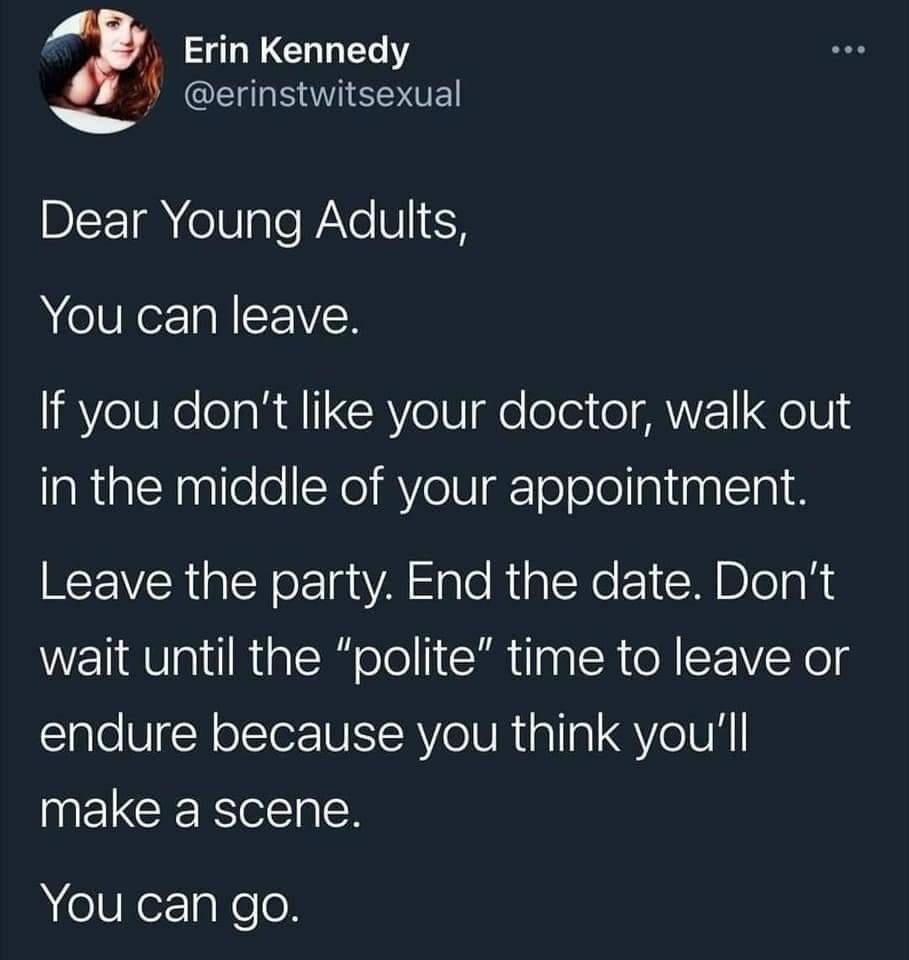Wednesday thoughts
In this Issue:
- Fraternity and sorority life recruitment updates
- Holding Space events – update
- Getting comfortable saying no
- A reminder about the Wake Safe app
Class registration is this week, and students can feel a certain amount of stress as they make their class choices. In case you hear from your student that they ‘can’t get the classes they need,’ encourage them to 1) consider classes at an earlier time of day (often there are plentiful openings at 8 and 9 a.m.) and 2) consider taking a class with a different professor than they had originally chosen.
It’s also important to remind first-year and sophomore students that there is typically a lot of time to get in their major/minor classes, so don’t panic if they can’t get in one for the spring. Students need 120 hours to graduate, and most of our majors, with a couple of exceptions, require 30-36 credits. So there will be time to do those majors and still have plenty of room for elective classes.
Fraternity and sorority life recruitment updates
The Office of Fraternity and Sorority Life has shared the following information that might be of interest to some of our families:
- Panhellenic Sorority Recruitment closes November 10. Students interested should register using their Wake Forest email address.
- Panhellenic Sorority Parent Information Sessions will take place December 6 at 7 p.m. (register here) and December 18 at 1 p.m. (register here).
- For any student who is interested in joining a NPHC fraternity or sorority, a general information session will be held November 13 at 6 p.m. in Benson 410. Students can RSVP on the The Link.
- IFC (Fraternity) Spring Recruitment Registration will go live November 15. Registration Information can be found here: IFC Registration.
Holding Space events – update
I had previously mentioned the bystander trainings on antisemitism and Islamophobia. Following the first run of events, it seems those did not serve students’ interests and needs as had been hoped, so the remaining sessions previously advertised will not take place.
Instead, the focus is going to be on events we are calling Holding Space, which do seem to be meeting students where they are right now. Encourage your Deacs to take advantage of the Holding Space events as needed.
Getting comfortable saying no
One of the most stunning and thought-provoking quotes I have seen in recent years is this:
For those of us who are people-pleasers and who generally don’t like to make waves – and I think many of our students fall into this category – it is really hard to say “No.” We don’t want to disappoint people, or be judged, or seem like we aren’t fun, or whatever. Saying “no” can be hard. But it is a very necessary skill to learn (and in fact, I wish I had learned it earlier in my life).
We all have comfort levels and boundaries that we need to honor, and sometimes “No” is the answer you need to give. I found an article last year that was a sort of primer on how to say no in your work environment, and I adapted some of the language to the college setting.
For social situations/invitations
- “Unfortunately, I have too much to do today. Maybe I can join you next time.”
- “I appreciate you inviting me, but I can’t make it.”
- “That sounds fun, but I have a ton of homework/studying to do.”
- “Sorry, I have already committed to something else. I hope you understand.”
- “I would love to join you, but I’m feeling a little overwhelmed with school right now.”
- “I really shouldn’t go out this time, but thank you.”
For requests for help on a task (informal tutoring, study groups, run an errand, etc.)
- “Sadly, I cannot help with that. I don’t have the bandwidth right now.”
- “How about you try the homework on your own first, and then I can help you if you get stuck?”
- “The timing right now isn’t good. Hopefully another time.”
- “I enjoyed helping you last time, but I am slammed right now.”
- “My schedule is jammed. Maybe check with someone else from our class?”
- “I’ve been feeling too busy lately. I will have to decline this time.”
- “Unfortunately, I cannot say ‘yes’ this time. Please know it is nothing personal.”
- “I can’t help you study tonight, but I have a study guide I can forward to you.”
If asked to do something outside your comfort zone, or someone presses you to change your mind*
- “This doesn’t feel right for me, so I’ll pass.”
- “I told myself I wouldn’t do that again. Thanks for respecting my decision.”
- “No, I can’t do [insert]. I would appreciate it if you accepted my choice.”
- “I’m not comfortable going into details, but I hope you can understand that I can’t do that.”
- “This doesn’t seem like a healthy decision for me. I will have to regretfully decline.”
- “Agreeing to this would go against what I believe in. Thank you for being understanding of that.”
- “I’ve had a negative experience with that before, so I’ll have to decline.”
- “I don’t feel comfortable with you pressing me on that. Please respect my decision.”
* NOTE: scroll down to the final item in today’s blog for another way to say no to a social situation!
If you do not have the financial means to do something
- “I’ve been spending too much money lately, so I will have to decline, but thank you for the invitation.”
- “I’m low on cash right now. Can we do something that’s free?”
- “I can’t make it for dinner, but I’d love to catch up with everyone afterwards. Tell me where I can meet the group once you’re back on campus.”
- “I can’t join you for [the activity] this time, but I know [name] might like the opportunity to do that. Perhaps you can invite them?”
- “That sounds so exciting, but I’ll have to wait for another time to do that with you.”
As you have the opportunity to do so, reinforce to your Deac that it is not just OK, but sometimes essential, to say no. Having the encouragement or blessing of loved ones in saying no might make the process easier for our students.
A reminder about the Wake Safe app
I hope that your Deacs have all downloaded (and are using) the Wake Safe app. (If not, urge them to do so!) There are lots of benefits to the Wake Safe app: it essentially makes your mobile phone a two-way communication channel to University Police, has emergency location sharing, etc. But it also has the “Social Escape” button, which can really come in handy if your student is not yet comfortable saying no.
The Social Escape feature allows your student to get out of a tough social situation by calling them and giving them an excuse to leave. The way it works is this: when you hit Social Escape, you enter your phone number and press submit, and then within the timeframe you specify (e.g., 30 seconds, 1 minute, etc.) your phone will ring, and you can tell the people you are with you need to take this call and you can walk away to answer it (and then you can just keep walking and remove yourself from the situation).
Whether your student says “No” to something they don’t want to do, or uses the Wake Safe Social Escape, they are developing the important skill of learning how to do what is right for them. We’ll close today with another of my favorite graphics on this topic:



